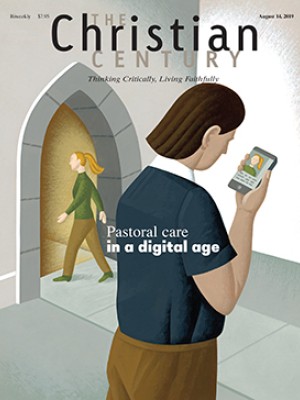September 1, Ordinary 22C (Proverbs 25:6-7; Luke 14:1, 7-14)
Jesus and Maimonides are drinking from the same well: the book of Proverbs.
Arrogance destroys. Those who glorify themselves at the expense of others end up ruining relationships at every turn. As the book of Proverbs warns, “arrogance yields nothing but strife” (13:10).
It’s not just human relationships that are threatened, since, we are taught, God finds egotism detestable. Proverbs again: “Every haughty person is an abomination to the Lord” (16:5). In the same spirit, the Talmudic sages imagine God declaring, “Anyone who is haughty—he and I cannot dwell in the same world” (BT, Sotah 5a).
Why is arrogance so bad? For one thing, one who spends her time admiring her own achievements (whether imagined or real) quickly forgets how much she needs others. Whether we like to admit it or not, we are all inescapably dependent on others—parents who birth us, teachers who nurture us, farmers who feed us, artisans and factory workers who help clothe us, and so on, almost literally without end. And to be alive is to be dependent on God, who brings the world, and us within it, into being. The Talmudic sages insist that that one who becomes full of herself is as one who denies the reality of God (Sotah 4b); their observation is not hyperbole but an explanation of the inner logic of arrogance.
Read our latest issue or browse back issues.
Mark Twain witheringly observed that “a self-made man is like a self-laid egg.” Arrogance is presumptuous; it’s also—necessarily—false. At bottom, arrogance is a form of forgetfulness. The only words we remember are I and me.
This forgetfulness can have grave ethical consequences. When we exalt ourselves, we forget how much we owe to others. We run the risk of granting ourselves moral license—after all, the rules apply only to our inferiors.
A proverb subtly reminds us that arrogance often ends up embracing injustice and lawlessness: “Better to be humble among the afflicted than to share spoils with the proud” (16:19). Bible scholar Christine Yoder astutely observes that the parallel we’d expect for the “afflicted” (aniyim/anavim) is the “rich,” yet instead “the proverb identifies the greedy culprits as the arrogant—a move that explicitly connects conceit with injustice.”
To be clear, the verse does not romanticize poverty. As Bible scholar Michael Fox explains, in Proverbs poverty is undesirable but pomposity is much more so. The gains enabled by arrogance are corrupt and corrupting, and in any case they are often short-lived.
Perhaps this is why Proverbs is so insistent that pride goes before the fall. “When arrogance appears, disgrace follows,” we are told (11:2); “pride goes before ruin; arrogance, before failure” (16:18). Earning the enmity of God and other people, we all but guarantee our own destruction.
Proverbs warns: “Do not exalt yourself in the king’s presence; do not stand in the place of nobles. For it is better to be told, ‘Step up here,’ than to be degraded in the presence of the great” (Proverbs 25:6–7). The immediate context here is the life of courtiers who vie for power and status, but the wisdom expressed applies much more widely: if you seek your own exaltation, you are courting disaster.
The alternative to self-seeking? Humble and committed service to a cause, and an ideal, greater than ourselves. Psalm 132 petitions God to “remember in David’s favor all the hardships he endured” in serving God and building the temple. The spiritual life is, to no small extent, about learning to glorify and exalt someone other than ourselves.
When Jesus declares, in continuity with the Hebrew Bible, that “all who exalt themselves will be humbled, and those who humble themselves will be exalted” (Luke 14:11), he is reminding his disciples that vanity and bombast lead to devastation, and that humble service leads to the only glory that matters: being good and worthy in the eyes of God and our fellow human beings.
Jesus goes on to admonish his followers: “When you give a luncheon or dinner, do not invite your friends, your brothers or sisters, your relatives, or your rich neighbors; if you do, they may invite you back and so you will be repaid. But when you give a banquet, invite the poor, the crippled, the lame, the blind, and you will be blessed. Although they cannot repay you, you will be repaid at the resurrection of the righteous” (14:12–14). Jesus’ point, ultimately, is not to deny our welcome to those closest to us but to extend our welcome to those whom others tend to forget or ignore. Why is this so important? Because to invite the unseen and unregarded is to embody the living antithesis to self-aggrandizement and self-promotion. A great deal comes down to upending the ethos that so often dominates our lives. Instead of plotting what you can get, ask how you can serve and what you can give.
Maimonides offers impassioned guidance to those who seek to celebrate a festival. “When a person eats and drinks in celebration of a holiday,” he says, “he is obligated to feed converts, orphans, widows, and others who are destitute and poor. In contrast, a person who locks the gates of his courtyard and eats and drinks with his children and his wife, without feeding the poor and the embittered, is [not indulging in] rejoicing associated with God’s command, but rather the rejoicing of his own belly.”
Maimonides’s comments have a deep affinity with Jesus’ because both drink from the same well: the book of Proverbs and the ethos of service it recommends. If arrogance destroys, kindness and generosity give life—both to the giver and to the receiver.





